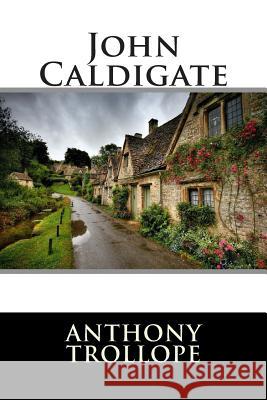John Caldigate » książka
John Caldigate
ISBN-13: 9781512199673 / Angielski / Miękka / 2015 / 272 str.
After taking his degree at Cambridge, John Caldigate found himself, in consequence of certain amusements at Newmarket and elsewhere, heavily indebted to a moneylender, Davis, and with no means to meet his obligation. His father Daniel Caldigate, disgusted with his extravagance and folly, arranged through his banker friend Nicholas Bolton for the sale by his son of the reversion of the estate and for a mortgage to clear his debts. At Mr. Bolton's home where John went to sign the papers, he met, briefly, Bolton's young daughter Hester, and fell in love with her. With his college friend Dick Shand, he went out to New South Wales to try his fortune in goldmining. On the long voyage out he met Euphemia Smith, an adventuress, and was trapped into a quasi-engagement. The two young men had the good fortune to locate a paying mine and worked together until Dick, who had been drinking heavily, disappeared. John, in his loneliness, foolishly renewed his attentions to Euphemia Smith, and for a time they lived together. After John had acquired a considerable property he sold his mine and returned to England, where he was reconciled with his father and married Hester Bolton. Soon after the birth of his son, Euphemia Smith and Tim Crinkett a former partner to whom he had sold his interest in the mine, followed him to England to blackmail him into a repayment of 20,000. They alleged that the mine was worked out; that he had married Mrs. Smith in New South Wales; and that his marriage to Hester Bolton was bigamous. He recognized that there was a moral though not a legal claim for the return of part of the purchase price of the mine, but was advised against buying them off. In the course of the trial, however, he very foolishly did so, and when this became known, opinion ran against him. He was convicted and sentenced to two years' imprisonment. The evidence against him rested largely on an envelope posted in Sydney, addressed by him to Mrs. Smith as Mrs. Caldigate. A postal clerk succeeded in proving that the postmark on the envelope was a forgery, and that the stamp was not issued until after the date of the postmark. At this fortunate moment Dick Shand returned and by his testimony proved that there had been no marriage. An appeal was made to the Home Office, and John received the Queen's pardon."
Zawartość książki może nie spełniać oczekiwań – reklamacje nie obejmują treści, która mogła nie być redakcyjnie ani merytorycznie opracowana.











